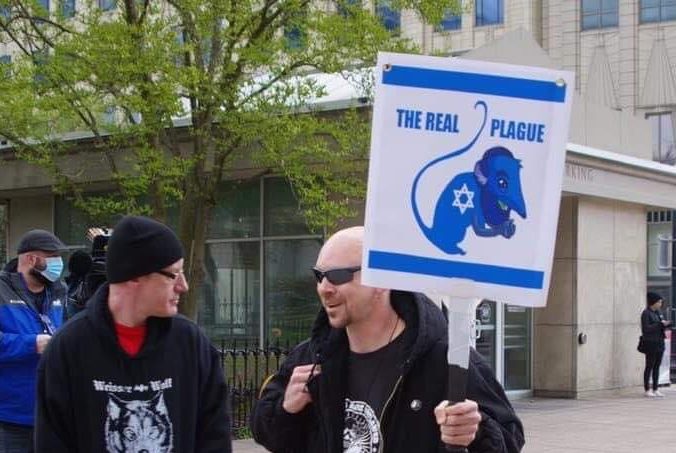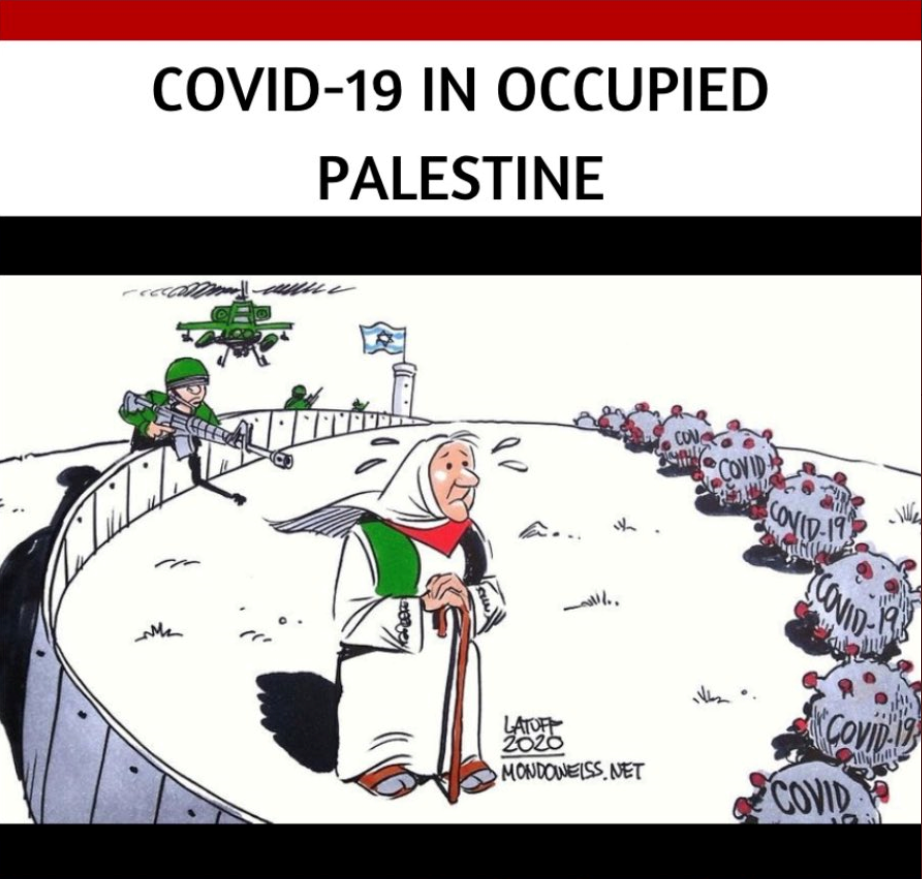Publications
INSS Insight No. 1311, May 5, 2020

In recent years, the Jewish world has been beset by two longstanding diseases – growing antisemitism and the delegitimization campaign against Israel. The struggle against antisemitism has lately commanded increased attention and resources among Jewish communities, various governments around the world, and even the Israeli establishment. In tandem, the coronavirus crisis has changed the global agenda and created difficulties for Jewish communities in the Diaspora that have yet to be fully understood. The struggle against threats to the safety and security of Diaspora Jewry, alongside the multidimensional implications of the coronavirus crisis for these communities, presents not only a major challenge, but also a unique opportunity to increase cooperation and commitment, and to better the connection between the State of Israel and Jewish communities around the world.
Prior to the outbreak of the corona pandemic, the Jewish world outside of Israel was occupied with an older, more familiar disease – antisemitism, which has evidently reared its head in recent years with new fervor. Simultaneously, Jewish communities in the diaspora confronted efforts to delegitimize the State of Israel and smear its name in the international arena, mainly in opposition to Israel’s policies vis-à-vis the Israeli-Palestinian conflict. The struggle against antisemitism has recently commanded increasing attention and resources, not only among Jewish communities and various governments around the world, but also within the Israeli establishment. Nowadays, alongside ongoing incidents of antisemitism and delegitimization of Israel, the coronavirus crisis – which has changed the global agenda as well as that of Jewish communities outside of Israel – has created a difficult reality with implications for these communities that are yet to be fully understood.
The high morbidity and mortality rates among certain Jewish communities in the diaspora, such as the ultra-Orthodox community in New York, are currently causing people to be deterred – not necessarily based on antisemitic sentiments – by people who outwardly look Jewish. This fear has even been expressed in discriminatory civilian-initiated prohibitions against Jews entering public places. This sentiment, which is rooted in a sense of vulnerability and helplessness against the pandemic, is not directed only at Jews, but also at foreigners and minority groups in general, including Asians in the US, who allegedly represent China, which is sometimes perceived as being responsible for COVID-19. Nonetheless, displays of hatred toward Jews are not unrelated to the increase in cases of classic antisemitism. Rather, they are translated into rhetoric that blames Jews for the spread of the disease, and a variety of other conspiracy theories regarding the role of Jews in the pandemic. Such theories include the idea that Jews created the disease as part of a plot to take over the world in general, and financial institutions or sites holy to Islam in particular; the theory that Jews hold the cure for the disease but are refusing to share it with the rest of the world; and even the belief that God sent the disease to humanity in light of Jewish stubbornness not to convert to Christianity.
In addition, recent months have been marked by serious restrictions on activity in the physical public sphere, with much activity diverted to the virtual realm. This unusual situation has affected how antisemitic ideas are disseminated and the intensity with which they are received in a number of ways. First, the online realm enables antisemitic expressions, memes, and video clips that in the past reached a relatively limited audience, to reach larger and new audiences through virtual networks, even long after they were first produced and distributed. Second, there has been a marked increase in the brazenness of those distributing antisemitic messages, who promote their ideas not only in marginal forums of extremist groups that champion white supremacist ideology, but also on mainstream websites and social networks such as Twitter, Facebook, and Instagram, which particularly during the coronavirus crisis enjoy increased popularity. There has also been anitsemitic “ZoomBombing,” where antisemitic activists penetrate Zoom meetings in order to distribute offensive antisemitic (and/or pornographic) content. Third, in the absence of restraining and moderating factors, antisemitism is experienced as more powerful, threatening, and imminent. Furthermore, at this stage, it seems that those operating the social media platforms are unable to remove the offensive content with sufficient speed or effectiveness.
The JewFlu HoloCough PlanDemic - Max Igan https://t.co/IqEcawGtwL #BitChute
— Tami Cousin (@looktothebible) April 22, 2020
Antisemitic expressions in the virtual realm raise another issue. Although the professional literature does not identify a clear correlation between opinions, statements, and behavior, there is concern that at the end of the quarantine period, and with a mass exodus to the physical public space, there will be distancing, discrimination, and possibly even increased violence directed at Jewish communities in comparison to the pre-corona era.
Another well-known phenomenon is popular action regarding the delegitimization of Israel as the nation-state of the Jewish people, particularly against the background of the Israeli-Palestinian conflict. While it seems that the volume of activity in this context has actually decreased since the outbreak of the pandemic, perhaps due to the cancellation of planned activities in public spaces and declining public interest in the Israeli-Palestinian conflict, activists in this realm are adjusting to the online realm. For instance, Israel Apartheid Week – an anti-Israel campaign typified by tangible and vivid displays, parades, and events over the past 16 years, mainly on university and college campuses – has migrated almost completely to the internet. Arguments raised against annually Israel during this time are now joined by claims that Israel is preventing medical treatment from Palestinians, blocking vital supplies from reaching them, and preventing them from understanding the risks involved in the spread of the pandemic by refusing to translate life-saving information into Arabic.
An interesting development during the COVID-19 era in the context of the two familiar phenomena – antisemitism and delegitimization of the State of Israel – is the increasing overlap between them on two levels. Predictably, campaigns by movements delegitimizing Israel tend to degenerate into hateful antisemitic rhetoric and imagery. For instance, a new campaign (launched under the hashtag #COVID48), which was launched just prior to Holocaust Remembrance Day in Israel, compares the corona pandemic and its ramifications on the world’s citizens to Israel and Zionism, which are described as a disease affecting Palestinians. On the less anticipated front, there is increasing evidence of connections between ideological extremes, where champions of classic antisemitism (who generally belong to extreme right wing circles that promote white supremacy) and champions of Israel's delegitimization (who usually belong to extreme left wing and radical Islamic circles) are sharing content and conspiracies with each other in online forums and blogs. For instance, a particular video clip produced for extreme right wing forums promoting the antisemitic message that “Jews control America” was later uploaded to Facebook groups supporting the delegitimization of Israel with an adjusted message that “Zionists control America.”

These challenges join the profound and unique difficulties currently experienced by Jewish communities across the globe. For instance, beyond the high morbidity and mortality rates, most Jewish communities are built around community organizations and institutions, which have largely been shut down – in some instances leading to economic crises just short of collapse. Moreover, social distancing limitations have led to the cessation of some community services, mainly in the areas of Jewish education and religious services. Despite the fact that some of these activities have resumed online, community members have been forced to forego other services at this stage, including parts of formal and informal education for preschool and grade school children, synagogue services, yeshiva studies, and Jewish burial services. All of these will require reconstruction processes that will last months, at the very least.
The State of Israel is legally and morally bound to assist Jewish communities around the world. Thus, at this intersection between the corona pandemic and the phenomena of antisemitism and delegitimization of Israel, and in the new reality in which diaspora Jewish communities find themselves, it is important that the State of Israel take three central actions. First, now more than ever, Israel’s commitment to the Jewish people as a whole must be strengthened by establishing stronger channels of open and direct dialogue with the leaderships of Jewish communities around the world, in order to learn about their situation, understand their needs, and examine with them whether and how Israel can assist at this time. Second, Israel must work shoulder to shoulder with state governments and digital platforms where there is a marked increase in antisemitic expressions, provide authorities and other relevant bodies with clear indicators of the phenomena, and demand concerted action both off and online. Third, an inter-ministerial government forum for the struggle against antisemitism must be formed, including the Ministries of Diaspora Affairs, Strategic Affairs, Foreign Affairs, and others, in conjunction with relevant nongovernmental bodies. Such a forum will oversee the coordination of relevant activities, and will plan and prepare for the aftermaths of the corona crisis, when expressions of hate may spill over from the online realm to physical violence against Jews.
The struggle against the threats to the safety and security of diaspora Jewry, as well as the multidimensional ramifications of the coronavirus crisis for diaspora communities, are not simply a major challenge – they are also a unique opportunity to increase cooperation and commitment, and to better the connection between the State of Israel and Jewish communities around the world. This opportunity must not be missed.
The Israeli occupation is more dangerous than #coronavirus#Covid48 #Act4Palestine pic.twitter.com/A8MVN2nnPU
— Women For Palestine (@WomenForPal) April 20, 2020


